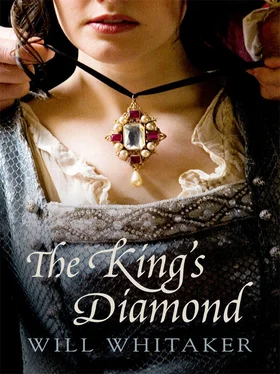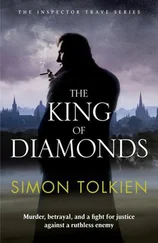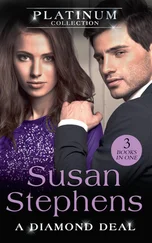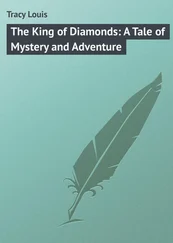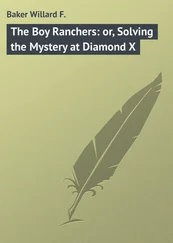We balanced with our legs straddling the roof, hallooed and waved our arms. Beneath our feet ran the great highway of London, the Thames. Every manner of boat was to be seen. There were lighters with their brown sails spread, hire boats steered by a single man at the stern, crossing from one landing-place to another, and the tilt boats with eight oars that carried larger numbers of passengers down to Greenwich. But what really drew my eyes were the great barges of the nobles with their gilt prows and raised sterns, and the heraldic banners flying with fringes of Venice gold. In time I learnt to recognise them all: the crossed keys and scarlet hat of Cardinal Wolsey; the royal leopards and lilies of the Duke of Buckingham, before he was beheaded for ambitions a little too near the throne.
Best of all was when I saw the King himself passing between his various palaces. The royal barge had a crimson awning covering its full length, with flags flying above it and gilded dragons and wyverns on poles. No oarsmen could be permitted in so exalted a craft, and so a second boat towed it, with dozens of rowers all in the scarlet royal livery, using a long tow-rope which dipped and splashed in the Thames. The barge itself glided on, spilling the sound of lutes and shawms and laughter, and the scent of sweet perfumes that drifted even as far as our rooftop, almost masking the stench of the river. The cannons fired from the Tower downstream in salute, and sometimes I could hear the sound of the trumpets as the barge put in at the wharf at the Palace of Bridewell, four landings up, where the King from time to time held court. The others grew tired of this spectacle long before I did. They eased themselves down the tiles and crept back round into the attic, while I stayed, intoxicated. It was dusk, often, by the time I turned for home, and if I had not known the feel of those timbers in the dark I would have met death many times over.
Our house stood immediately behind the warehouse, facing north across Thames Street to the tiny church of Saint Mary Summerset. The street makes a strange sort of a twist here, where Labour-in-Vain Hill comes snaking down to a stop against Thames Street. This meeting-place of three ways forms an odd corner of calm. Passers-by paused when they reached our crooked lane-end, as if to take stock, reconsider their journey and go on. The house itself was like a thousand others in the City: towering, steep-gabled, one rain-bleached oak beam balanced on another, cantilevered ever outwards over the road. This toppling effect, my mother said, served no other purpose but to ensure that when you threw your soil out of your bedchamber it did not end up in your parlour. Behind our windows were the dim, panelled rooms that custom demanded, a parlour and hall and even a small gallery, running along Bosse Lane towards the Thames. To me, returning from the wonders of the royal barge, home appeared a drab place, full of the greys and browns of pewter and kersey cloth, and the stink of tallow candles and rushlights. Pewter might have stood for our rank in life. The vast mass of people in London still ate their meals off trenchers of wood or earthenware; far above them, the gentry and nobility used silver. Pewter was for the well-to-do, the respected, the solid; those who stood high, but not too high. Even though we could have afforded to buy some silver vessels, my mother would not hear of it. ‘Once you begin to ape the Court, there is no end to it. Let us keep the way we are.’
In the parlour after our plain supper, I used to question my parents on all the marvels that went into making royalty: where their treasures came from, what they cost, who brought them into England. My father rose to this, his face taking on a look of childlike delight. Sitting by the fire with the flames glinting off the oak panels, he would spin me tales of the furs and the satins that noblemen wore, the cloth of silver and gold and the fabulous dyestuffs, crimson, scarlet and indigo; the perfumes made out of the pungent musk-glands of the Indian civet cat, and the floating ambergris that is said to be the excretion of Leviathan. My mother regarded his stories with cold watchfulness. When my father was not there she beckoned me up to her, squatted down and instructed me. ‘Remember this, Richard: never fall in love with your cargo.’ I looked back at her defiantly. It seemed to me she might have added, ‘Never fall in love at all.’
Already, in those days, my mother was a powerful woman. My father let her run a good deal of the business. He admitted freely she had more sense than he did, and her investments did well. But hers was a cold trade. ‘Buy what you understand,’ she was fond of saying. ‘Buy what you know you can sell.’ For her, all the wondrous things that she bought and squirrelled away in the warehouse were just so many ingenious routes towards profit. She enjoyed the chase, and the devious thrill of outskirting the other merchants by means of plans well judged and precisely laid, but in the end she reckoned up her happiness in marks of silver or Venetian ducats. That was her plan in life: to grow richer and even richer, and live all her life on Thames Street within sight and smell of the river.
Thomas resembled her, in character and in looks. He was darkhaired, with brows that frowned while he thought. The careful one, she called him, who always thought before he spoke. I was the quick one, the one with no head for book-learning; I was the dreamer of impractical dreams, with my lithe frame and thin face, and quick, sharp eyes the colour of off-green pebbles. ‘Too quick,’ my mother said, ‘and too like your father.’ Too quick to be seduced by the glitter of pretty things, she meant: too quick to desire, and doubtless in the future too quick to buy. A merchant must be slow.
But that was not the style of my father. His purchases were affairs of the heart. When I was eleven, he brought back a bag of Arabian pearls, which he gave me to play with. I remember rolling them about on a broad platter by the fireside, holding them up to see the way they shone in the yellow light of our candles, and then sorting them with tweezers by size.
‘Pearls,’ my mother frowned. ‘Why pearls, in God’s name?’
‘I bought them because they sang to me,’ was my father’s reply.
They sang to me too. They spoke of a life beyond what I knew, and for which I was developing a vague but powerful longing.
As I grew older, I used to slip away whenever I might and steal northwards up Labour-in-Vain Hill to Cheapside. Here I was truly in a different world. The breadth and openness of the street, the stone paving, unlike most of the city which lay in its own filth, the houses that stood in their majesty like the sterns of great ships, the water conduit with its gilded statues of saints; at all these things I marvelled.
Here, on the corner of Bread Street, is that wondrous stand of houses known as Goldsmiths’ Row. Four storeys high they rise, beautified all along the front with figures of wild woodmen riding on monstrous beasts, all richly painted and gilt. There were fourteen shops in all. At the centre of the Row, beneath the largest and fiercest of the woodmen, was the shop of the King’s own goldsmith, Cornelius Heyes. He was a man of weight, received at Court with as much deference, so they said, as a great noble. There were others too, almost as grand: Christian Breakespere and Bartholomew Reade, and Morgan Wolf. They knew my family, of course. My father traded with them all, on occasion. Here I came to perch on a stool in a corner, and watch, and learn.
In a goldsmith’s shop you are struck, first of all, by the light. The Row faces north, like a painter’s studio, and the shelves inside the shops are draped in white cloths, so that there is always the same gentle radiance. Set against these cloths the gems glow, each with its own proper fire. On one shelf stand solitary stones in their purity, rubies and amethysts, garnets and sapphires, some exquisitely cut and polished, others virgin stones straight from the earth, rough like hailstones. On another shelf are rings and signets, threaded on wire or perched on silver stands made to look like the branches of trees. One wall holds crosses and reliquaries, and crystal tablets engraved with scenes of the saints, and the precious things that princes love: little crucifixes for rosaries, jewelled combs, tinderboxes, scent flasks, inkhorns, hourglasses, mirror frames and hawks’ bells, all worked in gold and set with agate or enamel or mother of pearl. Higher up stand the great flagons and ewers of gold or silver gilt, gleaming down over the shop like suns, waiting to be presented to the King. I remember in the shop of Mr Cornelius a pair of gilt basins chased with beasts and dragons that weighed over six hundred ounces, and a vase of rock crystal graven with roses and crowns and the cipher of the King and Queen, H and K woven together, sprinkled across it in gold.
Читать дальше
